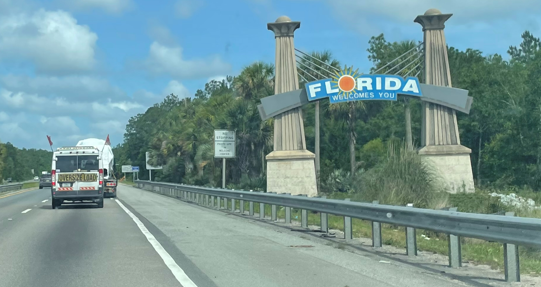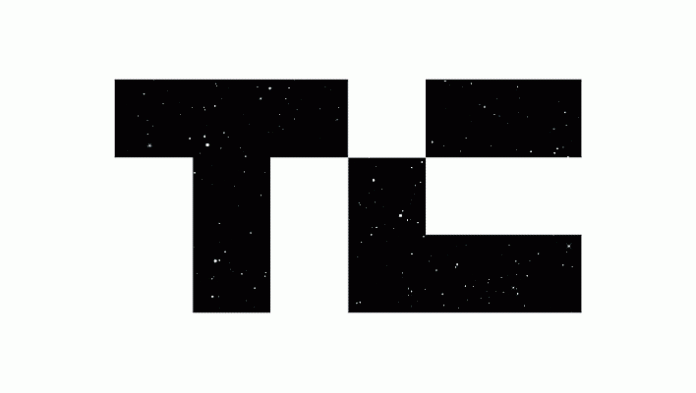Hello and welcome back to Max Q. There is SO much news this week, so let’s dive in.
In this issue:
- Astroforge’s asteroid mining ambitions
- Boeing’s Starliner comes home
- News from Virgin Orbit, Rocket Lab and more
Don’t forget to sign up to get the free newsletter version of Max Q delivered to your inbox.
Although we’ve long understood that asteroids are not simply the rubble of the universe, but potentially profitable stores of precious minerals, humanity has never been able to unlock this value. Y Combinator startup Astroforge wants to succeed where other companies have failed, by becoming the first to mine an asteroid and bring the material back to Earth — and it’s aiming to do so as early as the end of the decade. (Yes, that is not a typo — end of the decade!)
To start, Astroforge will be conducting a tech demonstration mission sometime next year. The company’s already booked a spot on a SpaceX Falcon 9 rideshare mission, and it has also contracted a deal with OrbAstro to manufacture the satellite. But for now, the startup is staying mum on the actual details of the payload, and how they will solve the myriad technical challenges for which asteroid mining is so notorious.
“We now need to build a world-class team to go after this, as it’s a really hard problem to solve,” co-founder Matt Gialich said. Later in the conversation, he added, “That’s the fun part of startups, right? It’s a big risk until you go do it.”
Welcome back, Starliner! The spacecraft touched down in New Mexico on Wednesday, successfully concluding a six-day mission and the craft’s first successful test flight. As TC’s Devin Coldewey writes, even though not everything went exactly as planned, “this success may establish Boeing as a much-needed second provider of commercial ISS launch capabilities.”
During a post-launch briefing, NASA commercial crew program manager Steve Stich called the landing “picture perfect.”
Next up is a Crew Flight Test (CFT), which will carry astronauts and, for that reason, will be much higher stakes. The date of that launch will likely not be set for several months.
Image Credits: Boeing / NASA / YouTube
More news from TC
- The Diffractive Solar Sailing project was awarded $2 million from NASA to develop diffractive solar sails, a kind of space propulsion that’s not dissimilar to how sails propel boats.
- Planet, BlackSky and Maxar are poised to get billions in government contracts from the National Reconnisance Office, an agency of the Department of Defense that operates intelligence satellites. “The NRO has a long-standing strategy of ‘buy what we can, build what we must,’” said NRO director Chris Scolese in a press release.
- Starlink has added a new “RV” plan to provide coverage for stationary RVs at parking spots, camping grounds and RV parks. It comes in at $135 per month, plus the cost of hardware. SpaceX’s internet service now has more than 400,000 global subscribers (!!!).
…and beyond
- Amazon‘s AWS announced the 10 startups selected to participate in its 2022 Space Accelerator. See the full list here.
- Astroscale’s U.K. arm got a funding boost to the tune of around $15.9 million from OneWeb and the European Space Agency to launch its orbital debris servicer ELSA-M toward the end of 2024.
- Benchmark Space Systems opened a U.K. facility, the latest sign that the European space industry is ready to catch up to ours here in the States.
- Citi released a 92-page report on the space industry, estimating that it will generate $1 trillion in revenue by 2040. The banking group speculated the satellite market will continue to dominate, but the fastest growth will come from “new space applications and industries” like space logistics and asteroid/moon mining.
- Firefly Aerospace will likely target a July 17 launch for its Alpha rocket from NASA’s Vandenberg Space Force Base, providing all goes according to plan with regulators, Eric Berger reports.
- Gama, a French space startup, has partnered with NanoAvionics for the satellite bus, integration and launch services, and satellite operations, for a demonstration mission of Gama’s solar sails propulsion system.
- Launcher, a rocket startup, won a contract from the U.S. Space Force valued at $1.7 million to further develop its debut rocket engine.
- Lunar Outpost, a Colorado-based startup focused on robots and rovers for the moon, closed a $12 million seed round led by Explorer 1 Fund with participation from Promus Ventures, Space Capital, Type One Ventures and Cathexis Ventures.
- NASA is targeting June 6 for the second wet dress rehearsal attempt of Space Launch System, the launch vehicle that will blast off for the agency’s first Artemis mission. Rewatch the media briefing here.
- Open Cosmos, a U.K.-based space-tech firm, launched a new platform called DataCosmos to “provide advanced visualisation and data usage tools,” the company said in a news release.
- Orienspace, a Chinese rocket company, closed a $59.9 million Series A led by HikeCapital. The company joins an increasingly crowded group of startups in China looking to develop launch vehicles.
- Relativity Space is hard at work transforming Cape Canaveral’s Launch Complex 16 into the site that will launch the company’s 3D-printed Terran 1 rocket by the end of this year.
- Space Perspective, a startup that wants to launch tourist rides on stratospheric balloons, closed $17 million in new funding, bringing its total funding to date to over $65 million.
- SpaceX launched Transporter-5 on Wednesday, carrying 59 spacecraft on a booster that’s seen eight missions (including this one). Customers include HawkEye 360, Spire and Satellogic. The rocket was also carrying a demonstration mission for Nanoracks, which is testing cutting metal in space. (Look out for a follow-up story soon.) Rewatch the launch here.
- Stratolaunch debuted its “structurally complete” test hypersonic launch vehicle, Talon-A. The vehicle will be used to validate the release system of the Roc aircraft carry (to which Talon-A will be attached). See photos here.
- Ubotica Technologies raised $4.2 million in seed funding led by Atlantic Bridge with investment from Dolby Family Ventures and Seraphim Space. The Irish startup is developing an on-board processing system for satellites.
- Varda Space Industries, a startup that wants to build in-space manufacturing facilities, has ordered a fourth Photon spacecraft from Rocket Lab. Photon will provide all the relevant infrastructure (like propulsion, power and attitude control) for Varda’s 120 kg manufacturing payload. It will also return to Earth in a re-entry capsule any products manufactured by Varda.
Photo of the week

I loved this photo, tweeted out by Relativity Space, of Terran 1’s second stage crossing state lines. If all goes to plan, Terran 1 will make its first orbital launch attempt by the end of this year. Image Credits: Relativity Space (opens in a new window)
Max Q is brought to you by me, Aria Alamalhodaei. If you enjoy reading Max Q, consider forwarding it to a friend.

